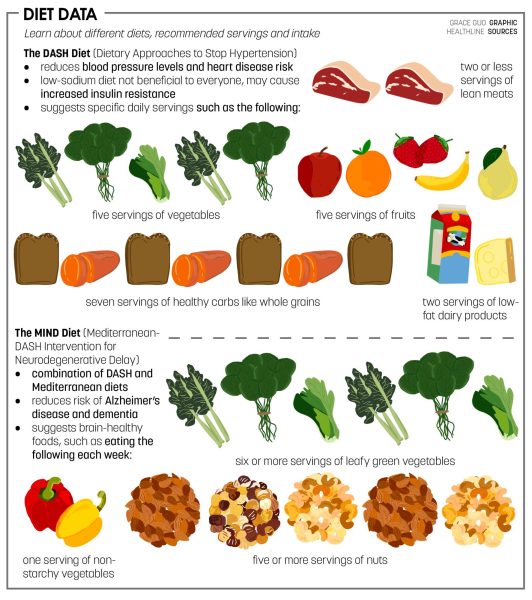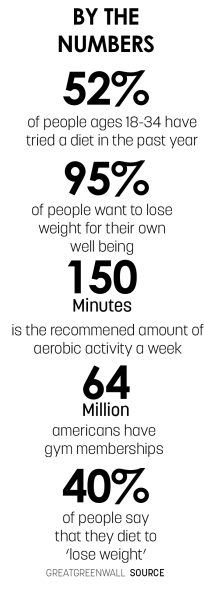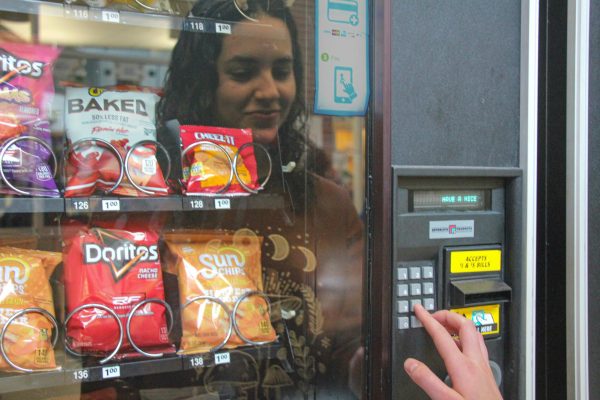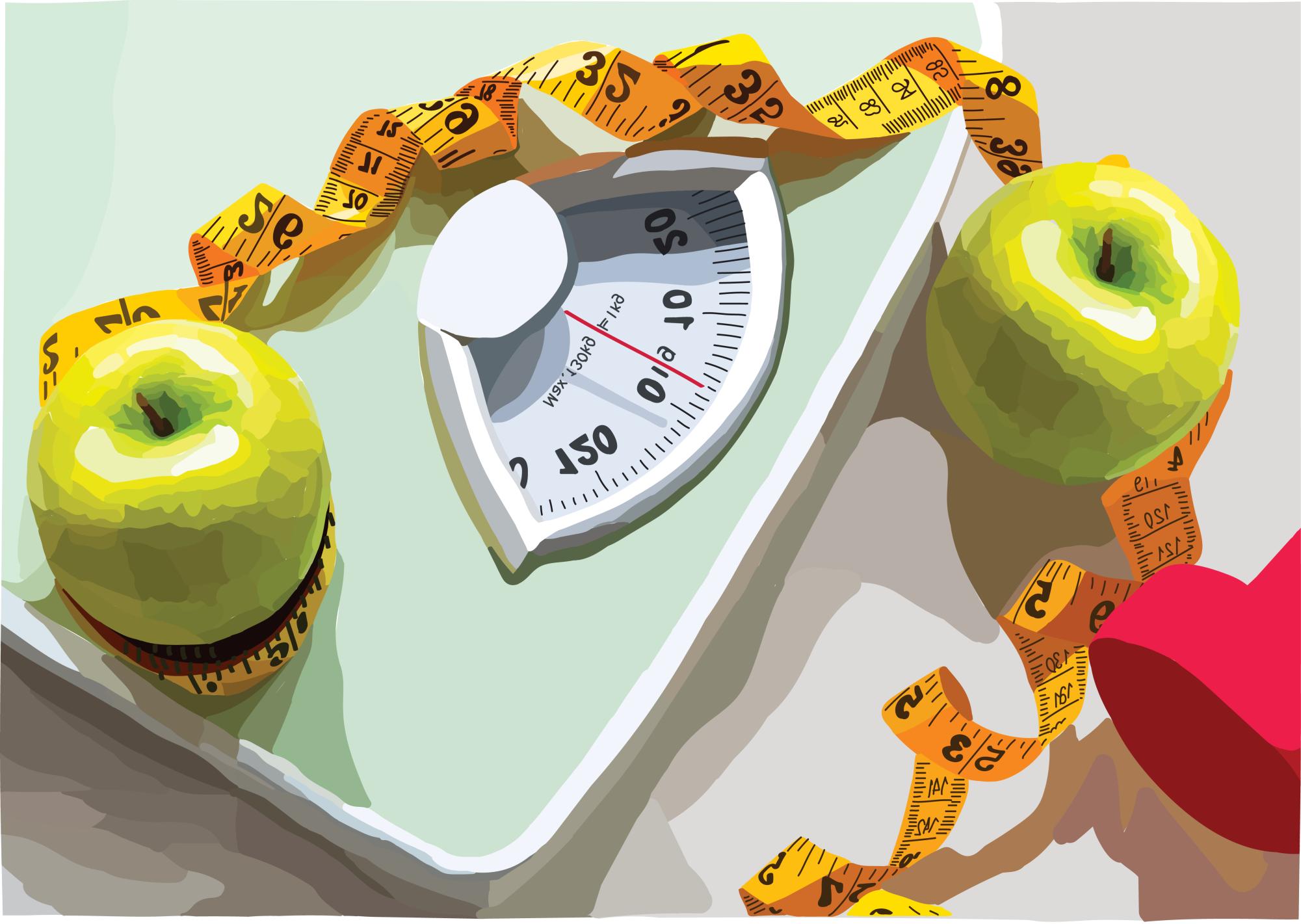Senior Chris Yu shows up at his cafeteria table empty-handed; he had skipped breakfast that day too. For Yu, every food he eats has the potential to add weight to his body, which he said he views as being detrimental to his dieting. Hungry after skipping breakfast and lunch, he said the prospect of dinner drives him through the rest of the day.
“I try to skip the first two meals of the day, breakfast and lunch,” he said. “If I get hungry, I’ll eat. I’m not going to force myself to not have food. But I usually try to skip the first two meals and have just enough dinner to make sure that I’ll survive. You will eventually start losing weight based on how many calories you need to function in the day compared to what you’re actually eating. I’ve gotten used to it and I make sure I eat enough in a day. It’s not like I’m just completely starving myself.”

Yu said he started his “cutting” diet a month into this school year. With more free time from being a senior and having his own car, he said he decided to take working out and dieting more seriously. Cutting, a form of dieting often utilized by bodybuilders, involves reducing a person’s calorie intake to burn body fat while maintaining muscle mass.
“I’m not necessarily (cutting) in the healthiest way or how people would recommend you to do it,” he said. “Sure, it could be unhealthy while you’re doing it, but if you do it right and achieve your goals, then you can definitely be a lot healthier than you were before (dieting).”
Yu is far from being the only teen to engage in dieting behaviors. According to a 2019 data brief released by the National Center for Health Statistics, about 37.6% of adolescents aged 16 to 19 in the United States attempted to lose weight that year. Additionally, a study from the International Food Information Council revealed that 52% of people globally aged 18 to 34 have tried a diet in 2021. With February being National Eating Disorders Awareness Month, students and eating disorder experts analyze the border between healthy and unhealthy dieting amid the current epidemic of teenage eating disorders in the United States.

the borderline
Dr. Carrie Carter, owner of Carter Psychology and president of the Eating Disorder Task Force of Indiana, said dieting of any kind is usually discouraged in her practice.
“Based on my profession, I think anytime you’re changing the way you eat to control your body, it can become problematic,” she said. “For some, genetically, it’s not a problem; they can (diet) without obsessing or feeling guilt or shame. But for others, it can be problematic.”
She also said dieting behaviors are not encouraged because they can easily fall into eating disorders.
“Basically, what’s most common among most eating disorders is that there’s some type of restricting behavior,” she said. “Whether it’s someone skipping meals, trying hard not to eat certain types of foods, limiting food intake, cutting things out completely or even forcing food intake, that’s almost always where it starts. The transition from healthy dieting to unhealthy dieting varies. For some, it happens in weeks. For others, it might be, ‘Okay, I’ll cut back on sugar,’ and then three months later, it’s cutting back on carbs. It gradually builds over time. Some clients start dieting and are fully into an eating disorder within 30 days. Others take about a year. It depends on the individual, unfortunately.”
Lizzie Woerner, a registered dietitian specializing in eating disorders, said diets are very unnatural for the human body.
“Anything that’s going against our biology is not health-promoting,” she said. “It’s not natural to try and gain as much muscle as possible and then restrict your carbs so that you’re as lean as possible, but still have big muscles. That’s definitely going against natural biology or physiology. I think there are some people who can do it decently healthily and not have a super terrible relationship with food. But I think those people are probably the minority.”
Woerner also said diets are not sustainable for most people. According to her, it is hard for people to maintain diets because humans were not designed to go on them.
“It’s not sustainable because your body needs fuel,” she said. “We need to eat several times throughout the day. If you’re hungry, then that’s your body telling you that you need to eat since that’s how we were made. Think back to the ancient times, way before technology. How do you think people knew to eat? It was their natural hunger signal.”

need for control
According to Naomi Fields, former AP Psychology student who researched eating disorders and senior, teenagers have less control over their daily lives which could make them more prone to start dieting.
“It’s more of a control thing than anything else because pretty frequently as a teenager, you don’t have control over a lot of things that go on in your life,” she said. “You have to go to school. You pretty much have to do what your parents tell you to do. You’ve got to get into college. There’s all these factors that you don’t have a lot of control over, but how you treat your body is something that really only you can control. And so it’s pretty frequent that dieting or having an unhealthy mindset when it comes to food is less about the food and what you look like, although definitely that can be part of it, and more about having control over that, even though it’s a little bit of an unhealthy coping mechanism.”
Woerner said she agreed with Fields, and said controlling eating habits often provides comfort amid the unpredictability of life.
“Eating disorders are like an emotional regulation system,” she said. “It often starts because things in their life are out of control or they feel out of control. And so they turn to food. People often feel the need to control their food because their life is suddenly feeling chaotic and it’s the one thing they can hold on to.”
the bottom line
For his part, Yu said dieting has been hard at times, but the process feels smoother now.
“When you’re cutting, it’s definitely a struggle at first,” he said. ”But after the first couple of weeks as you get used to your routine and not much food is in you as at all times, it gets a lot easier and you’ll definitely go through with it. You’re not going to fail, you’re not going to die as long as you’re doing it right.”
Yu said he looks forward to the day he feels perfect in his own body and sees himself in a positive way. But until then, he said he will continue dieting.
“I’m nowhere near where I want to be or where I want to finish (dieting), so it’s just a process,” he said. “The end goal is to feel good about myself. I want to look good, obviously, but just feel good as well.”

As the months passed, Yu said he now employs a “body recomposition” diet instead of a cutting diet, which focuses less on losing weight and more on muscle building.
“I’m trying to get in more lifts now and being more consistent with (working out),” he said. “I am also changing my calorie deficit goals from like a 300-500 calorie deficit to like a 200 calorie deficit.”
Yu said he acknowledged how his diet could become unhealthy if he is not self-aware of his behaviors. Therefore, he said he is constantly monitoring his caloric intake to ensure he is approaching his diet in a healthy way.
“I have been using MyFitnessPal to track my calories since I started my diet,” Yu said. “If people become too obsessed with the numbers and with seeing short-term progress, (dieting) could become unhealthy. I know things like this take time so I’m not too focused on seeing immediate results because I know they will come eventually.”
Ultimately, Fields said people should eat in ways that make them feel proud of themselves or feel good about themselves. And if dieting is needed, then it should be done in order to improve self-image.
“Go into it being very self-aware,” she said. “You don’t go into it comparing yourself to someone else because your body is different from everyone else’s. And don’t go into it thinking about how you’re going to fail. I think that’s a pretty common thought too. Like you go into it and you think it is never going to work. If you go into it thinking you’re going to fail, you’re probably going to fail. So if it’s something that you choose to do and something that will make you feel better in your own skin, then just do it with caution and pretty much ignore everyone else’s opinions about it because each person will tell you something different.”

